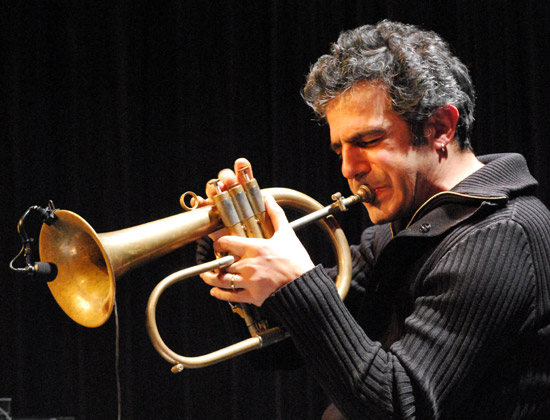Music: Modern Forms
The Importation of New Genres
Italy is known for being one of the few nations that hasn’t experienced a strong roots revival, but roots revival groups do often perform with brass bands throughout Italy. The country remains the heart of classical and opera music, however, and has imported many genres from throughout the world with success.
Jazz was first introduced to Italy during World War I, and gained massive popularity in the years following the end of the war. It was so well-received that most conservatories in Italy have jazz departments, and many jazz festivals (most notably Umbria Jazz) are held throughout the nation.
Notable artists include musicians such as Paolo Fresu, who began studying trumpet at an early age and began playing jazz during the 1980s. He has gone on to win several awards and to direct jazz festivals and seminars.
Paolo Conte is renowned for his voice and compositions, characterized by a resonant sound and melancholic lyrics. He started out as a vibraphone player before going on to write songs of his own, some of which have been featured in films.
Rock was introduced during the 1960s, evolving from Italian covers of classical rock hits. Young Italians during this time were able to combine their education in classical music and their exposure to the progressive rock movement to give birth to a distinctly Italian rock music scene. The genre continued to develop over the decades, with the bands spanning all subgenres of rock being formed.
The 20th century saw many musicians reaching beyond (or letting go of) their knowledge of classical music in favor of new sound technology, resulting in an experimental genre of music led by artists such as guitarist and instrument-builder Paolo Angeli.
Article written for World Trade Press by Cam Waller.
Copyright © 1993—2024 World Trade Press. All rights reserved.

 Italy
Italy 